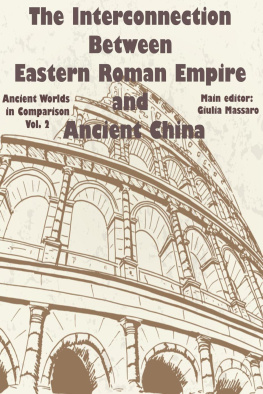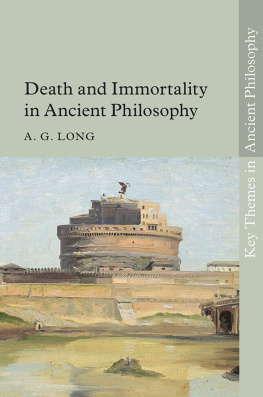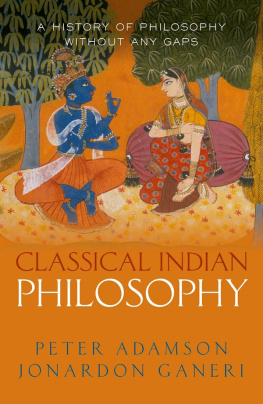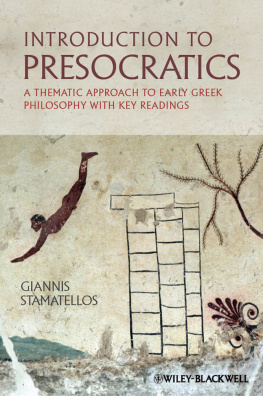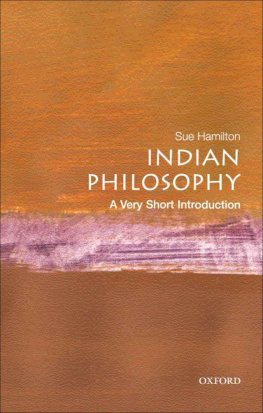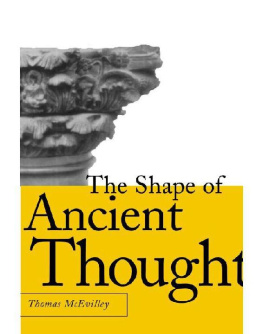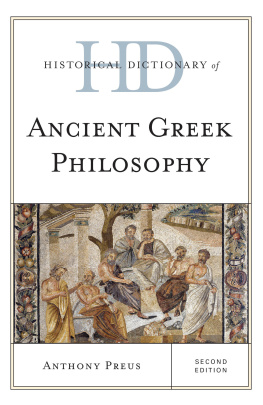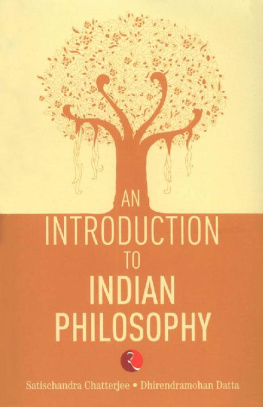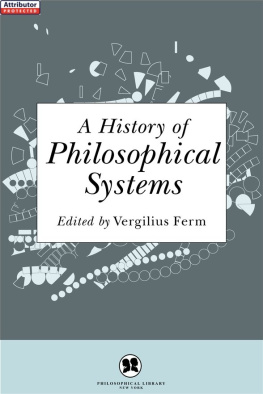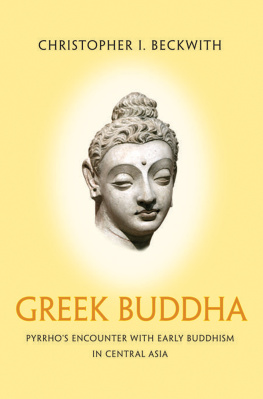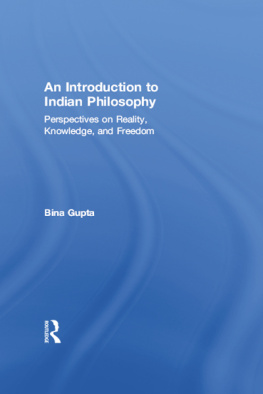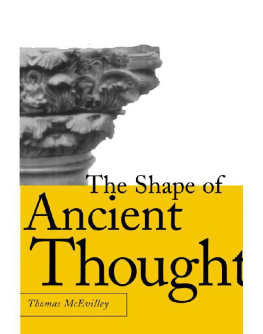Contents
The Roots of Philosophical Thought in Ancient Greece and India
Volume 3 of the Book series: Ancient Worlds in Comparison
First published independently, August 2020
Book series editor: Giulia Massaro
Turin, Italy
This publication is in copyright, subject to the provisions of relevant collective licensing agreements.
No reproduction of any part is permitted without the written permission of the editor.
F OR WHAT IS ETHICS ,
if not the practice of freedom,
the conscious practice of freedom?
Michel Foucault
1. What is a practice of freedom?
In the above quotation, Foucault raises the question What is ethics? There are many possible answers to this question. It is often presumed that conscious deliberation and choice are the essence of ethical behaviour. In this book we will be drawing a contrast between systems of ethics which are based on the affirmation of free-will and those which are based around pre-determined or law-bound obedience. We will thus be raising the question of whether individual agency and personal responsibility are essential to all ethical behaviour. In this book we will draw a constant comparison between philosophical practices of freedom which aim to give the agent more control over his actions and those which affirm agent-less or prescribed action as the only true means of liberation.
Ethics is often concerned with evaluating different modes of living, in an attempt to determine the best possible way of life. This book aims to create a dramatic impression of a series of lives well-lived: the life of the student of the Brahmanical ritual, [1] the life of the Upanisadic student, the life of Yajnavalkya, [2] the life of Socrates, and finally the life of a Socratic student (Theaetetus) [3] . In each chapter, we will attempt to get inside the perspective of these characters as they are formed by a range of philosophical practices. We will examine the different ways in which these practices promise freedom. This freedom is presented as either a given, which can be directly inherited, or as something that must be fought for and grasped independently.
Foucault argues that it is the conscious practice of freedom that leads to the best possible way of life. In Foucaults late lectures, [4] he states that the practice of freedom must be founded on a moment of self-concern, when the individual consciously separates themselves from power relationships. Foucault therefore bases his ethics on every individual taking personal responsibility for their own freedom. He means they must become critically aware of the power relationships that surround them and they must begin a deliberate practice of relating to themselves as if they were free from these constraints, consciously considering what to make of their own freedom.
In his last lectures, Foucault acknowledges his debt to the figure of Socrates as he appears in the Apology. Socrates presents the best possible life as one in which everything is questioned. He states: The unexamined life is not worth living [5] . This critical stance also forms the basis for Foucaults ethics as the conscious practice of freedom. Socrates and Foucault both presume that the best possible way of life is one in which the individual has the right to critically examine their own existence without constraint. [6] They both present philosophy as a practice of freedom that discovers, uncovers and creates a life worth living.
In this study we will look at different systems of ancient ethics in which the individual was not considered responsible for their own self-formation. We will attempt to see the value of alternative practices of freedom that are not based on conscious choice or deliberation, but on freeing individuals from responsibility for themselves. Our aim is both to inherit Foucaults emphasis on philosophy as a practice that leads the individual to become free, and to completely question the idea of freedom on which he bases his theory.
The Oxford English Dictionarys definition of freedom states that freedom is first and foremost Personal liberty, non-slavery, civil liberty; independence; liberty of action, right to do; power of self-determination. [7] It also states, in a kind of secondary definition, that freedom is exemption from defect, disadvantage, burden. Foucaults use of the term freedom is closer to the first cluster of meanings. In this book we will argue that Foucault inherits a specifically Athenic concern with freedom as liberty within the social sphere. By contrast, the philosophical practices of freedom we will find in the Brahmanas and Upanisads are concerned with exemption from defect, disadvantage and burden on an ontological level. They are concerned with release from all human limitation. They are not concerned with liberty of action in the civil or social sphere.
We stated that a central question within ethics is that of the best possible way of life. This book addresses this question by comparing the life of the student of the Brahmanical ritual with the life of the Upanisadic student and the life of Yajnavalkya with the life of Socrates. In each chapter, we will attempt to get inside the perspective of these characters as they teach or are taught a range of philosophical practices. We will examine the different experiences of freedom which are promised by these practices. The student of the Brahmanical ritual, the Upanisadic student and the Socratic student all experience freedom differently as they perceive it to have been given to them, or achieved by them, in different ways. In attempting to inhabit their perspective we can compare the benefits of each of their practices. We can challenge Foucaults definition of freedom with Brahmanical and Upanisadic evidence that illustrates there are other ways of being free.
Foucault explains his motivation for turning to the study of Greek ethics as follows:
It was curiosity - the only kind of curiosity, in any case, that is worth acting upon with a degree of obstinacy: not the curiosity that seeks to assimilate what it is proper for one to know, but that which enables one to get free of oneself. [8]
Our motivation for turning to the study of ancient India is to free Foucault further from himself, to open up his ethical theory to a wider range of historical resources, and to expand, improve upon, and challenge his interpretation of ancient philosophy as a practice of freedom.
2. Ancient Philosophy as a Way of Life
Foucaults conception of philosophy as a practice of freedom was born of his engagement with the work of Pierre Hadot. Foucault was highly influenced by Hadots book entitled Philosophy as a Way of Life. In this work, Hadot maintains a polemic against contemporary academic philosophy. He asserts that academic discourse about philosophy is not the same as philosophy. [9] He aligns himself with Polemon, one of the heads of the Old Academy, saying we should exercise ourselves with realities, not with dialectical speculations. [10] Of the modem philosophers, Hadot affirms the influence of those who operated outside the university system, including Spinoza and Schopenhauer. He quotes Schopenhauer:


